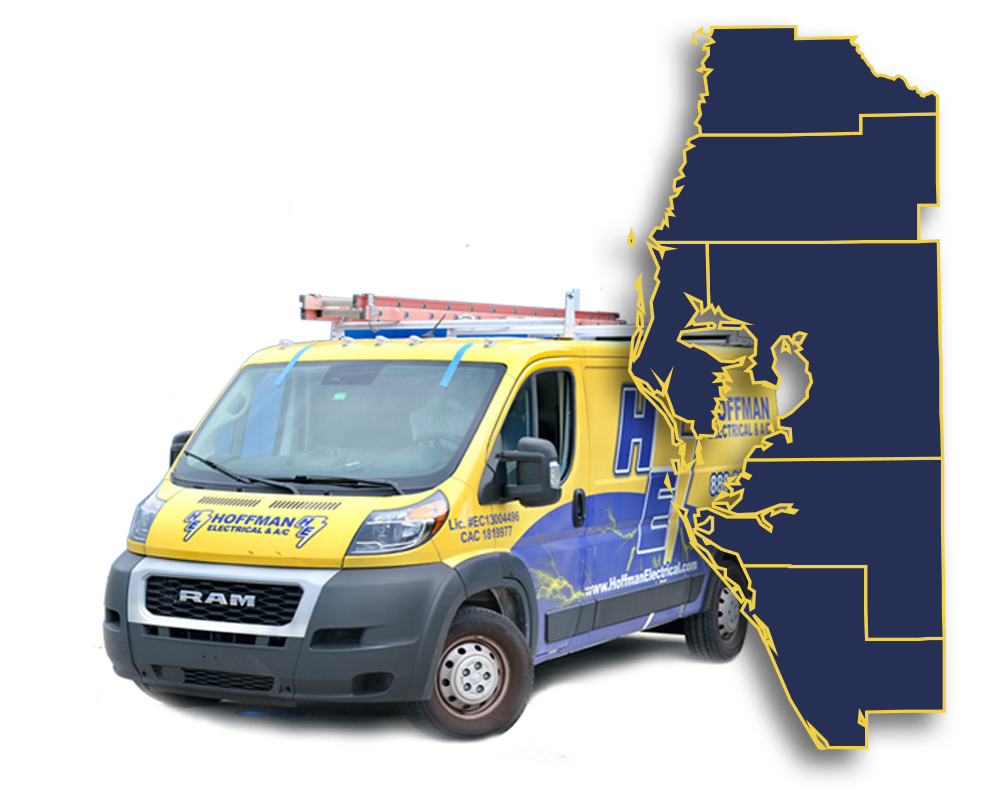Microwave ovens revolutionized kitchens across America when they came on the market in the 1970s. Since then, these technological marvels have come a long way, with more features, compact sizing, and greater cooking power than ever before. With greater power comes greater power usage, but if your microwave is tripping the breaker in your home, it's a sign that the appliance is overloading the electrical circuit. The questions are, why, and what can be done to solve the problem?
Reasons Why Your Microwave Is Tripping Your Breaker
When an appliance such as a microwave oven repeatedly trips the circuit breaker, it's overloading the electrical circuit, which is rated to handle a finite number of amps. Once the microwave exceeds that number, the breaker is tripped and the electrical flow is shut off. In order for this type of reaction to occur, there must be one of two issues at hand:
- Too many items are plugged into the same circuit that the microwave oven is on, causing an overload.
- The microwave oven is defective and drawing an excessive amount of electricity.
Determining the exact cause of a tripped breaker involves a few simple steps:
Check to see if the microwave has its own dedicated circuit
A dedicated circuit is one that serves only one appliance, helping to protect your home and electronics. By having more than one major appliance on a circuit, you run the risk of overloading the circuit and tripping the breaker. Repeatedly tripping the breaker can cause it to deteriorate, and if it should fail to trip, the overloaded circuit may cause the wiring to overheat, placing your home at risk of an electrical fire.
A microwave oven needs its own 20-amp circuit in order to prevent an overload. If it has a dedicated circuit, the tripped breaker should be labeled with the word "microwave" — if not, it's likely a shared circuit. Regardless of whether your microwave oven is on a dedicated circuit, it's a good idea to move on to the next step to ensure the appliance is operating correctly.
Test the microwave to determine if it's defective
Plug the unit into an alternate outlet, in an area of your home where the breaker has a higher amperage, such as in a garage or workshop, or into an outlet with a guaranteed dedicated circuit. If the appliance trips the breaker, the problem lies with the microwave, and you'll need to either repair or replace it.
If the microwave oven doesn't trip the breaker, you'll need to have a dedicated circuit installed to prevent further issues. Call the experts at Hoffman Electrical & A/C for an estimate, or if you're uncertain whether or not your microwave oven has its own dedicated circuit. Give us a call at (866) 238-3243, or contact us online.
Why Choose Hoffman Electrical & A/C?
Hiring the right company to perform electrical work in your home is the key to your satisfaction and the safety of your home and family. The fully certified, licensed, experienced electricians at Hoffman Electrical & A/C are dedicated to offering quality, professional service, where you can expect:
Call Hoffman Electrical & A/C at (866) 238-3243 or contact us to schedule your electrical services today!
Frequently Asked Questions About Microwaves Tripping Circuit Breakers
Why does my microwave keep tripping the circuit breaker?
Microwaves draw a high electrical load, especially when starting. If the microwave is sharing a circuit with other appliances, the circuit can overload and trip the breaker. A faulty microwave or a worn breaker can also cause repeated trips.
Does a microwave need its own dedicated circuit?
Yes. Most microwaves require a dedicated 20-amp circuit. A dedicated circuit prevents overloads, reduces nuisance breaker trips, and lowers the risk of overheated wiring and electrical fires.
How can I tell if the problem is the microwave or the electrical circuit?
You can test the microwave by plugging it into another outlet on a different breaker that has sufficient amperage. If it trips that breaker as well, the microwave may be defective. If it does not, the original circuit likely needs a dedicated line or electrical upgrade.
Is it dangerous if my microwave keeps tripping the breaker?
Repeated breaker trips are a warning sign. Frequent tripping can wear out the breaker, and if a breaker fails to trip when it should, overheated wiring can increase the risk of electrical fires. The issue should be inspected by a licensed electrician.
Who should install a dedicated circuit for a microwave?
A licensed electrician should always install a dedicated circuit. Proper installation ensures the circuit is sized correctly, meets electrical code requirements, and safely supports the appliance’s power demand.
Helpful Electrical Resources for Homeowners
Schedule Electrical Service Today
A microwave that keeps tripping the breaker is a warning sign.
Whether you need a dedicated circuit, breaker repair, or a full electrical inspection, a licensed electrician can fix the issue safely and correctly.



